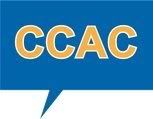Comments Invited! Captioning Advocacy is the Mission.
Use this Blog to discuss your ideas for new Captioning Advocacy Projects (CAPS). We invite you questions, suggestions, and energies. Ideas are helpful. Working with us via the blog comments, emails, social media, and the members’ forum (a ccac googlegroup) are all ways to accomplish the CCAC mission.
Get involved, take a few minutes today to say hello and say something about your need for captioning (subtitles, CART, related).
Also, when you “join” the CCAC itself (from our website or via email), your name and email address are added to the CCAC members forum, a googlegroup.
We invite all reading to join the CCAC using the membership form on the CCAC website. Go to ccacaptioning.org, then click on the right side where it says “Join the CCAC – Become a Member”. If you are a “provider” (of any sort of captioning services or products or related), please be sure to read the provider join page completely, including the paragraphs in red and say “Yes” when you submit the membership form.
If you are not a provider, you are a consumer (someone who needs captioning, or someone who supports the mission for a lot of other good reasons :-).
Questions? Just email us – ccacaptioning@gmail.com


Just wanted to let you know that Another Boomer Blog has nominated CCAC blog for the Dragon’s Loyalty Award. To accept, please go to http://anotherboomerblog.wordpress.com/awards/ – congratulations. 🙂
thanks – remind me to put your blog on our links asap if you don’t see it there –
it’s a bit crazy in the boston area today!
and join the ccac – that’s a good way to stay in touch (free membership 🙂
ls
interesting it so cool for me to understand
hi Tiffany – tell us more about you? working with captioning on any level? or ?
cheers,
LS/CCAC
Hello!
I’m 22 years old and I was born with my hearing loss. I have a mild to moderate hearing loss and I use hearing aids (and my boyfriend) to be able to communicate. I know little sign but I plan on taking classes so it will be my second language.
After this last vacation we took, my boyfriend and I have been talking about getting CC provided in more public places, such as museums. And wondered how can we do that?
I was wondering if I could get some advice on talking to “cultural centers” about getting their videos closed captioned so anyone hard of hearing or deaf could enjoy those places more. It would be nice if all museums had CC by default. Thanks for any advice! 🙂
Stephanie
Hi and welcome to the public CCAC blog Stephanie – we hope others reply here also – and if it’s okay with you, may I put your question also into the CCAC members’ forum online, our CCAC members’ google group? (reply here or to me using ccacaptioning@gmail.com).
That is where we meet online – members only – while this is open to the public – we hope you get some good replies and ideas in both places!
Lauren
I already posted my question there but thank you very much. Hopefully there are some good ideas running around. Thanks!
yes, saw that too, after we replied earlier here – see some suggestions to get you started in the members’ forum now…
cheers for captioning inclusion!
Lauren
p.s. if you talk directly to any museums, suggest they register and then place a request for captioning their media/videos with CCAC’s service called CaptionMatch – more info here:
http://CaptionMatch.com
I applaud the lobby at youtube re captioning,but, why has the ‘Deaf’ community been absolved from captioning inclusion, does a cultural trait mean they don’t have to include others ? e.g. DeafYou and Deaf iNews openly boast ‘NO CAPTIONS or SUBTITLING included’ Looks and is bad. It says do as we ask but not as we do. Do they not benefit from captions at all ? We need to lobby AT ASL and BSL areas that non-inclusion is very negative an approach to us all.
Hello Melow – Indeed members of the CCAC have asked several SL groups and sites online to add Quality Captioning – when we created the CCAC six years ago, it was also a puzzle to us. Today, six years later, I believe many more of those videos and sites are accessible to millions of us with hearing loss, deaf and deafened and for many others (hearing, plus others) with captioning, e.g. Joel’s site called Deaf Nation (his videos). At the same time, some SLusers find CC annoying, distracting, difficult for one of a few reasons we understand – it presents two languages to use at the same time, they are not fluent in the captioning language, or they do not want the video to “speak” to anyone who does not know SL.
If the captioning is “closed captioning” which means anyone can turn it on or off, we don’t understand the objection. These days on YouTube captioning inclusion is free and the editing of the machine captioning is free also. Yet SL users need to create a transcript (in English) firstly, an extra step.